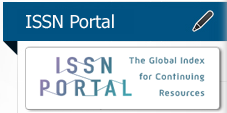INTERVENSI MINDFULNESS MENINGKATKAN KESEJAHTERAAN PSIKOLOGIS DI KRISIS PANDEMI COVID-19 : LITERATUR REVIEW
Abstract
Pandemi COVID-19 menyebabkan berbagai krisis pada kehidupan sosial, ekonomi dan kesehatan mental masyarakat.. Kesejahteraan psikologis yang baik pada situasi pandemi sangat diperlukan karena keadaan emosi yang positif dapat meningkatkan imunitas. Tujuan dari penelitian ini adalah untuk mengidentifikasi pengaruh intervensi mindfulness terhadap kesejahteraan psikologis dalam situasi krisi pandemi COVID-19.Penelitian ini merupakan semi systematic literature review. Pencarian literatur dilakukan melalui database online seperti Science Direct, PubMed, dan Google Schoolar dengan kata kunci“mindfulness”, “psychological well being”, “Mental health” dan “Covid-19”. Artikel diseleksi menggunakan kerangka PRISMA. Hasil didapatkan 8 artikel yang memenuhi kriteria inklusi. Berdasarkan hasil analisis dari 8 artikel Intervensi mindfulness dapat meningkatkan fleksibilitas emosional dapat meminimalkan kemungkinan terhadap stress, kecemasan, dan kesejahteraan psikologis. Dapat disimpulkan bahwa intervensi mindfulness memiliki pengaruh yang positif terhadap peningkatan kesejahteraan psikologis pada krisis pandemi COVID-19.
Abstract
The COVID-19 pandemic has caused various crises in people's social, economic and mental health. High psychological well-being in a pandemic situation is very necessary because a positive emotional state can increase immunity. The purpose of this study was to identify the effect of mindfulness interventions on psychological well-being in the crisis situation of COVID-19 pandemic. This study is a semi-systematic literature review. Literature searches were conducted through online databases such as Science Direct, PubMed, and Google Schoolar with the keywords “mindfulness”, “psychological well being”, “Mental health” and “Covid-19”. Articles were selected using the PRISMA framework. The results obtained 8 articles that meet the inclusion criteria. Based on the results analysis of the 8 articles, mindfulness interventions can increase emotional flexibility and minimize the possibility of stress, anxiety, and increase psychological well-being. It can be concluded that mindfulness interventions have a positive effect on improving psychological well-being during the COVID-19 pandemic crisis.
Keywords
Full Text:
PDFReferences
Alfawaz, H. A., Wani, K., Aljumah, A. A., Aldisi, D., Ansari, M. G. A., Yakout, S. M., Sabico, S., & Al-Daghri, N. M. (2021). Psychological well-being during COVID-19 lockdown: Insights from a Saudi State University’s Academic Community. Journal of King Saud University - Science, 33(1), 101262. https://doi.org/10.1016/j.jksus.2020.101262
Beshai, S., Prentice, J. L., & Huang, V. (2018). Building Blocks of Emotional Flexibility: Trait Mindfulness and Self-Compassion Are Associated with Positive and Negative Mood Shifts. Mindfulness, 9(3), 939–948. https://doi.org/10.1007/s12671-017-0833-8
Brooks, S. K., Webster, R. K., Smith, L. E., Woodland, L., Wessely, S., Greenberg, N., & Rubin, G. J. (2020). The psychological impact of quarantine and how to reduce it: rapid review of the evidence. The Lancet, 395(10227), 912–920. https://doi.org/10.1016/S0140-6736(20)30460-8
Champion, L., Economides, M., & Chandler, C. (2018). The efficacy of a brief app-based mindfulness intervention on psychosocial outcomes in healthy adults: A pilot randomised controlled trial. PLoS ONE, 13(12), 1–20. https://doi.org/10.1371/journal.pone.0209482
Choi, K. R., Heilemann, M. S. V., Fauer, A., & Mead, M. (2020). A Second Pandemic: Mental Health Spillover From the Novel Coronavirus (COVID-19). Journal of the American Psychiatric Nurses Association, 26(4), 340–343. https://doi.org/10.1177/1078390320919803
Crescentini, C., Matiz, A., Cimenti, M., Pascoli, E., Eleopra, R., & Fabbro, F. (2018). Effect of mindfulness meditation on personality and psychological well-being in patients with multiple sclerosis. International Journal of MS Care, 20(3), 101–108. https://doi.org/10.7224/1537-2073.2016-093
De Cieri, H., Shea, T., Cooper, B., & Oldenburg, B. (2019). Effects of Work-Related Stressors and Mindfulness on Mental and Physical Health Among Australian Nurses and Healthcare Workers. Journal of Nursing Scholarship, 51(5), 580–589. https://doi.org/10.1111/jnu.12502
Demarzo, M., Montero-Marin, J., Puebla-Guedea, M., Navarro-Gil, M., Herrera-Mercadal, P., Moreno-González, S., Calvo-Carrión, S., Bafaluy-Franch, L., & Garcia-Campayo, J. (2017). Efficacy of 8- and 4-session mindfulness-based interventions in a non-clinical population: A controlled study. Frontiers in Psychology, 8(AUG). https://doi.org/10.3389/fpsyg.2017.01343
Dwidiyanti, M., Wiguna, R. I., HAW, N., & Munif, B. (2019). Seni mindfulness spiritual Islam [The arts of Islamic spiritual mindfulness] (1st ed.). UNDIP Press.
Dwidiyanti, M., Wiguna, R. indra, & Ningsih, H. E. W. (2018). Mindfulness untuk Self-Care. In Mindfulness untuk Self-Care (p. 120). UNDIP Press.
Fard, T. R., Kalantarkousheh, M., & Faramarzi, M. (2018). Effect of mindfulness-based cognitive infertility stress therapy on psychological well-being of women with infertility. Middle East Fertility Society Journal, 23(4), 476–481. https://doi.org/10.1016/j.mefs.2018.06.001
Frisch, N. C., & Rabinowitsch, D. (2019). What’s in a Definition? Holistic Nursing, Integrative Health Care, and Integrative Nursing: Report of an Integrated Literature Review. Journal of Holistic Nursing, 37(3), 260–272. https://doi.org/10.1177/0898010119860685
Gál, É., Ștefan, S., & Cristea, I. A. (2021). The efficacy of mindfulness meditation apps in enhancing users’ well-being and mental health related outcomes: a meta-analysis of randomized controlled trials. Journal of Affective Disorders, 279, 131–142. https://doi.org/10.1016/j.jad.2020.09.134
Gao, J., & McLellan, R. (2018). Using Ryff’s scales of psychological well-being in adolescents in mainland China. BMC Psychology, 6(1), 1–8. https://doi.org/10.1186/s40359-018-0231-6
Gavin, B., Hayden, J., Adamis, D., & McNicholas, F. (2020). Caring for the psychological well-being of healthcare professionals in the COVID-19 pandemic crisis. Irish Medical Journal, 113(4), 5–7.
Godinic, D., Obrenovic, B., & Khudaykulov, A. (2020). Effects of Economic Uncertainty on Mental Health in the COVID-19 Pandemic Context: Social Identity Disturbance, Job Uncertainty and Psychological Well-Being Model. International Journal of Innovation and Economic Development, 6(1), 61–74. https://doi.org/10.18775/ijied.1849-7551-7020.2015.61.2005
Gray, N. S., O’Connor, C., Knowles, J., Pink, J., Simkiss, N. J., Williams, S. D., & Snowden, R. J. (2020). The Influence of the COVID-19 Pandemic on Mental Well-Being and Psychological Distress: Impact Upon a Single Country. Frontiers in Psychiatry, 11(November), 1–11. https://doi.org/10.3389/fpsyt.2020.594115
Koenig, H. G. (2020). Maintaining Health and Well-Being by Putting Faith into Action During the COVID-19 Pandemic. Journal of Religion and Health, 59(5), 2205–2214. https://doi.org/10.1007/s10943-020-01035-2
Langer, Á. I., Schmidt, C., Mayol, R., Díaz, M., Lecaros, J., Krogh, E., Pardow, A., Vergara, C., Vergara, G., Pérez-Herrera, B., Villar, M. J., Maturana, A., & Gaspar, P. A. (2017). The effect of a mindfulness-based intervention in cognitive functions and psychological well-being applied as an early intervention in schizophrenia and high-risk mental state in a Chilean sample: Study protocol for a randomized controlled trial. Trials, 18(1), 1–9. https://doi.org/10.1186/s13063-017-1967-7
Li, Q., Guan, X., Wu, P., Wang, X., Zhou, L., Tong, Y., Ren, R., Leung, K. S. M., Lau, E. H. Y., Wong, J. Y., Xing, X., Xiang, N., Wu, Y., Li, C., Chen, Q., Li, D., Liu, T., Zhao, J., Liu, M., … Feng, Z. (2020). Early Transmission Dynamics in Wuhan, China, of Novel Coronavirus–Infected Pneumonia. New England Journal of Medicine, 382(13), 1199–1207. https://doi.org/10.1056/nejmoa2001316
MacKenzie, J. S., & Smith, D. W. (2020). COVID-19: A novel zoonotic disease caused by a coronavirus from China: What we know and what we don’t. Microbiology Australia, 41(1), 45–50. https://doi.org/10.1071/MA20013
Matud, M. P., López-Curbelo, M., & Fortes, D. (2019). Gender and psychological well-being. International Journal of Environmental Research and Public Health, 16(19), 1–11. https://doi.org/10.3390/ijerph16193531
McConville, J., McAleer, R., & Hahne, A. (2017). Mindfulness Training for Health Profession Students—The Effect of Mindfulness Training on Psychological Well-Being, Learning and Clinical Performance of Health Professional Students: A Systematic Review of Randomized and Non-randomized Controlled Trials. Explore: The Journal of Science and Healing, 13(1), 26–45. https://doi.org/10.1016/j.explore.2016.10.002
Norouzi, E., Gerber, M., Masrour, F. F., Vaezmosavi, M., Pühse, U., & Brand, S. (2020). Implementation of a mindfulness-based stress reduction (MBSR) program to reduce stress, anxiety, and depression and to improve psychological well-being among retired Iranian football players. Psychology of Sport and Exercise, 47, 101636. https://doi.org/10.1016/j.psychsport.2019.101636
Pan, W. L., Gau, M. L., Lee, T. Y., Jou, H. J., Liu, C. Y., & Wen, T. K. (2019). Mindfulness-based programme on the psychological health of pregnant women. Women and Birth, 32(1), e102–e109. https://doi.org/10.1016/j.wombi.2018.04.018
Roy, D., Tripathy, S., Kar, S. K., Sharma, N., Verma, S. K., & Kaushal, V. (2020). Study of knowledge, attitude, anxiety & perceived mental healthcare need in Indian population during COVID-19 pandemic. Asian Journal of Psychiatry, 51(April), 102083. https://doi.org/10.1016/j.ajp.2020.102083
Shonin, E., & Van Gordon, W. (2016). The Mechanisms of Mindfulness in the Treatment of Mental Illness and Addiction. International Journal of Mental Health and Addiction, 14(5), 844–849. https://doi.org/10.1007/s11469-016-9653-7
Zhu, J., Wekerle, C., Lanius, R., & Frewen, P. (2019). Trauma- and Stressor-Related History and Symptoms Predict Distress Experienced during a Brief Mindfulness Meditation Sitting: Moving toward Trauma-Informed Care in Mindfulness-Based Therapy. Mindfulness, 10(10), 1985–1996. https://doi.org/10.1007/s12671-019-01173-z
DOI: https://doi.org/10.26751/ijp.v6i2.1314
Refbacks
Indonesia Jurnal Perawat indexed by
Published by LPPM Universitas Muhammadiyah Kudus
Jl. Ganesha Raya No.I, Purwosari, Kec. Kota Kudus, Kabupaten Kudus, Jawa Tengah 59316

This work is licensed under a Creative Commons Attribution-ShareAlike 4.0 International License.








